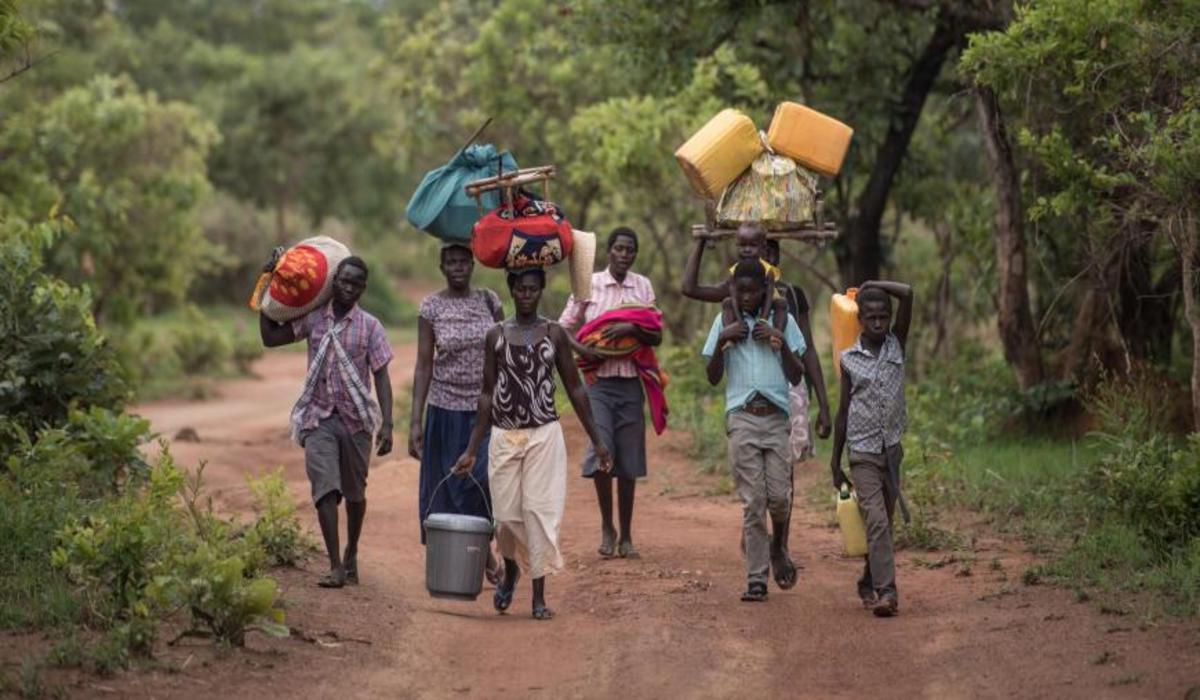In June 2011, the country of 11 million people declared its independence from Sudan following a referendum in which nearly 99% of voters chose to secede.
Since then, he has experienced tragedy after tragedy.
Soon after independence, civil war broke out, resulting in hundreds of thousands of deaths and millions of people injured and forced to flee their homes.
1.From political dispute to ethnic conflict
After Khartoum’s declaration of independence, a group of former rebels who acted as de facto leaders in the territory joined the new government’s plans to build a new and more prosperous state.
South Sudan is an oil-rich country and the new country’s government’s initial concern was to maintain production.
But for this he had to settle a number of disagreements with Sudan; After independence, South Sudan took with it more than 75% of its total oil reserves.
However, the South Sudanese needed oil facilities and the port of Khartoum to export this mineral.
Apart from this controversy, there have also been armed uprisings, border clashes and struggles over control of livestock.
2.Relative peace
In fact, people are still unable to return to their homes: many houses have been burned down, and armed groups are still operating in the jungle.
The South Sudanese say that in early December they killed several people who went to the farm and shot another in the arm.
According to the United Nations, in addition to the nearly 2 million South Sudanese displaced internally by the conflict, the number of South Sudanese refugees abroad, mainly in Ethiopia, Sudan and Uganda, has exceeded 2.2 million.
3.”They said they were going to cut us like a pumpkin”
A report released by Amnesty International in early December highlighted the recent wave of violence in the southwest of the country.
According to the organization, between June and October this year alone, dozens of civilians were killed and about 80,000 more were displaced due to clashes between armed groups in Western Equatoria.
Amnesty International interviewed dozens of survivors for the report. A 41-year-old woman told them how she and her older sister were caught in the bushes in September when they tried to flee Tambura.
4.”There is no money”
One of the points of the peace agreement requires the ultimate repatriation of all internally displaced persons and refugees.
“The government will have to contribute money to relocate people to their homes, but it says there is no money,” Madut adds.
The scarcity of resources is also visible when you look at the rate of vaccination against covid-19: the youngest country in the world is one of those with the least number of people vaccinated.
In mid-December, the World Health Organization (WHO) reported that South Sudan had received a total of over half a million doses of life vaccine for a country of 11 million people.
But nearly half of the doses have yet to be used, and by the end of 2021, less than 2% of South Sudanese have been vaccinated.
Meanwhile, Emmanuel, who lost everything in the war, including his farm and his brother, who he said was “killed”, only asks the national government, state authorities, and “possibly the international community” to work together to “bring him a lasting life. ” life “. peace to the people of Tambura and Western Equatoria”.
According to him, you must first withdraw the armed groups from the jungle, then disarm the population and facilitate dialogue between different groups.
“Additional humanitarian assistance is also needed to help local residents overcome the trauma of the war and repair schools that have been vandalized and destroyed,” he continues.
For his part, Professor Madut believes that improving the judicial system can be an excellent step towards finally ending the conflict.
“Currently, revenge is the only mechanism for gaining a certain sense of justice, so the violence continues,” he explains.
“If there is no state that offers justice to the affected people, people will always follow the path of revenge.”
